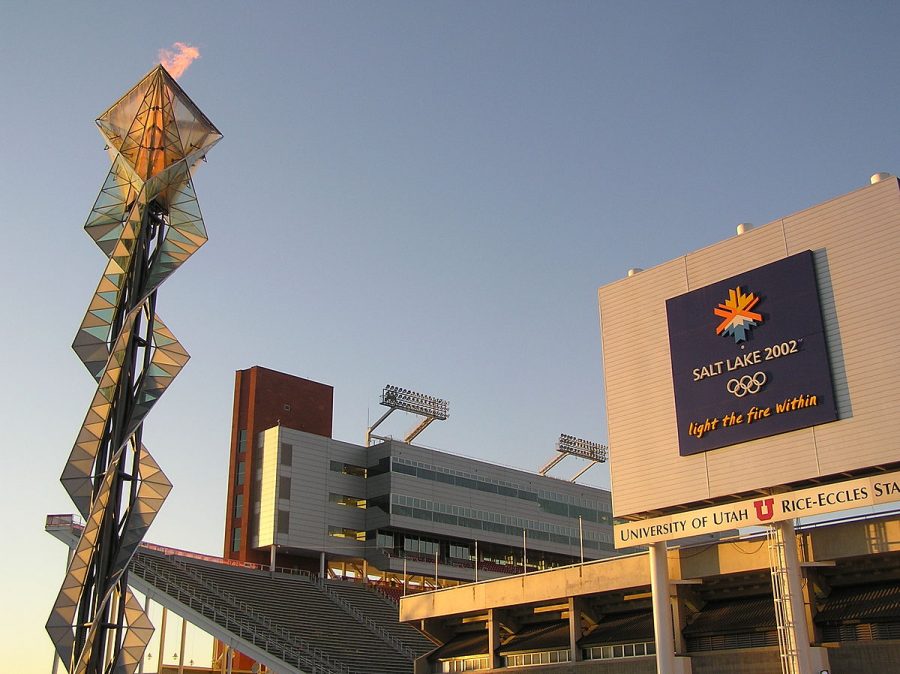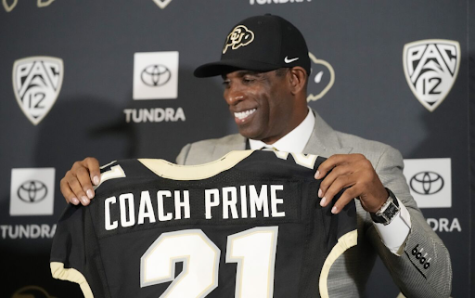Radical Changes in Olympic Hosting Fall Through
Colorado’s proposal for a co-hosted Olympic Games comes to a close.
Scott Catron
Cauldron Park is one of the several facilities that may return to the international spotlight in 2030.
December 19, 2018
The United States Olympic Committee announced on Saturday, December 15 that the nation will be supporting Salt Lake City in a bid to host a future Olympic Games.
This effectively ended Colorado’s efforts to pursue recognition alongside Salt Lake City as co-hosts.
Because of the inability to build some of the necessary tracks for the worldwide attraction — Colorado currently holds 13 of the 16 venues required — the state had begun the search for a second facility earlier this year once it was determined that the budget would be impossible to meet.
Utah hosted the Salt Lake City 2002 Winter Olympic Games, meaning it has all 16 venues already constructed. This, along with the proximity to Denver, made it a golden ticket in the eyes of Rob Cohen, chairman of the Olympic and Paralympic Exploratory Committee.
“We personally believe the Olympic movement is at a tipping point where the time is right for this kind of dialogue and discussion,” says Cohen.
Other locations that could co-host are Lake Placid, New York, or Vancouver, British Columbia, Canada, but the large separation between these locations and Denver makes the transportation between the Opening and Closing Ceremonies a bit far-fetched.
Despite the vigorous attitude of Colorado, the United States Olympic Committee still stuck with Utah as the sole host for the bid.
This may have been a result of the city losing reputation in the eyes of the United States and International Olympic Committees.
Denver, after being rewarded the host of the 1976 Winter Olympic Games, turned the offer down after overwhelming disapproval from the citizens.
The residents of Colorado opposed the Olympics coming to town because of the impact that the Olympics would have on their paychecks and the environment. Increased income for the government, in order to build facilities, would be added to taxes and the arrival of several thousand people to watch the events would do harm to the state’s economy.
“I think [the Committees] default to Salt Lake City as a more welcoming, more accepting host of the Games than Denver would be,” says Ed Hula, editor of the online, international Olympic newsletter “Around the Rings”.
Salt Lake City and the surrounding Park City has the experience of hosting the Olympic Games, making the budget for the event much smaller. This was another one of the reasons stated in the USOC’s report for their decision.
Every single host city has gone above their budget since 1960, with the most severe being the Montreal 1976 Olympics at 720% overrun.
Denver would also likely see a spike in the cost to host the Games, not to mention the costs to improve roadways and renovate facility sites. More so, Colorado is at a higher elevation than many people have been exposed to, providing another obstacle to overcome. The addition of many hotels and other forms of residency is also a huge expense to an already overwhelmed infrastructure industry.
However, this does not mean Denver is out of hosting the Olympics.
The IOC is having trouble finding a host city for the 2026 Winter Olympic Games, with only Stockholm, Sweden and a pair of Italian cities remaining. Should these cities fall out of contention or remove themselves from the competition as Calgary, Alberta, Canada already has, eyes may turn to the USOC.
This is unlikely, though, as the United States would then be hosting two back-to-back Olympics as Los Angeles is hosting the 2028 Olympics. Furthermore, should the Salt Lake City Olympics be considered for 2030, the nation’s chance for 2026 is ultimately crushed.
Although there may be a haze ruining Colorado’s reputation as a host city, the state has made clear that it will continue to fight for a bid on the national and international levels.
“What was important to us was to make sure we did this the Colorado way — that if we were going to do this, this had to be something that not only worked in [the IOC’s system] but worked in our system,” says Cohen.












